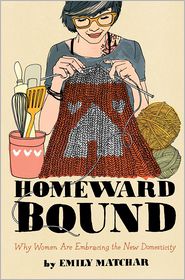(The image above is an affiliate link. I do have to pay hosting and domain costs, afterall.)
Chapter 2
As America industrialized, cash for work became highly valued. Emily Matcher writes, “labor was now valued by the amount of money it earned” (p. 32). What does this have to do with scrapbooking?
Adding Value to a Hobby?
I continued working at my local scrapbook store after gaining full-time work and completing my Master’s degree. Why? For me, the reason was two-fold. First, I really liked my co-workers. Even the occasional co-worker that drove me batty was usually polite. Second, I planned to study scrapbooking as a hobby and industry for my dissertation research. I probably would have worked for free if it meant I could maintain this connection to the industry.
Here I was, a woman with a Master’s degree and a full-time job who contiued to work part-time for a bit more than minimum wage and an employee discount. I even continued working there when I moved further than the mile I lived when I started working there. I added a commute to this job!
Was I an outlier? No. I interviewed 11 scrapbook industry workers (yes, that’s a small sample). Three were business owners and this was their full-time job. The rest were part-time workers in the industry, yet all except the two college students earned $40,000 or more per year. They earned the bulk of this money from their full-time jobs or had working spouses or parents. All of the industry workers had at least a Bachelor’s degree (two were current college students who have since graduated). For the most part, these were workers that were working to support their hobby. They (myself included) were making money off of their expertise on scrapbooking and spending this income on more scrapbooking supplies. When I intereviewed scrapbookers, I found some who were also industry workers–mostly direct sellers. It seems that women have a cultural need to make money off of their hobby (or leisure pursuits) in order to justify their spending on the hobby. Do men do this? Do men get a job at the golf course to pay for their hobby? Is this a thing? Is this something women do but men do not?
Is this the best use of my time, skills, or knowledge?
Matcher (2013) draws on Charlotte Perkins Gilman, posing the question, “[w]ouldn’t it make more sense to buy great bread and clothes made by professionals, while spending the rest of her time doing whatever she’s personally good at” (p. 35)? Though I enjoyed working in the scrapbook store, it wasn’t something I was particularly good at. I could enter new inventory really well, but selling supplies? Please. It’s a bit humorous that I ever thought I could support this blog through selling scrapbook supplies. I wasn’t particularly good at it when it was my job. More importantly, I am better at other things besides scrapbook supplies. My time is better spent doing those things that I am good at rather than attempting to show off my “bubbly personality” and “drool-worthy, jeolousy-inducing life” (please note the sarcasm). This is one of the reasons I cut way back on posting here and refocusing on the whole point of this website. This is a reason why some leave the hobby of scrapbooking altogether.
The False Promise of Project Life
In order to keep people in the hobby, it has to be made more efficient. (If people don’t have time for it, then how can they do it more quickly?) Matcher (2013) writes “increased efficiency and new techonologies did not exactly translate to more free time for women–housekeeping standards simply rose higher and higher” (p. 37). Hmmm…this reminds me of what I’ve observed happen with Project Life-style scrapbooking. The system is designed to be efficient. What could be quicker than slipping photos and journaling cards into a divided page protector? What we have seen instead is now more and more people are literally scrapbooking the everyday. Perhaps “real life” scrapbookers really are using it in time-saving ways, but what we see week after week are gorgeous spreads posted weekly. An occasional brave soul discloses how time consuming this all actually is. The point is that within the scrapbook industry, new technologies (Divided page protectors! Smash books!) have emerged (or more accurately re-emerged) as a way to make scrapbooking more efficient. But are they really making scrapbooking more efficient or have they simply increased the standards? Instead of scrapbooking “events” or the “everyday,” we now literally scrapbook every day. This certainly doesn’t seem very efficient.
A Criticism of Chapter 2
Matcher continually attempts to connect new domesticity with the recession of 2008, despite new domesticity actually emerging earlier. The recession played some role in increasing the number of women (and men) pursuing domesticity (hello, layoffs and stagnant wages). I don’t think Matcher gives enough credit to the Internet and other technologies that made documenting new domesticity for other’s consumption possible. I think the Internet made new domesticity visible. People no longer needed sophisticated computer skills to start a website. Digital cameras could be bought at higher quality for less money. Social media allowed people to promote themselves for little to no money.
That’s enough for today. I’ll try to write about Chapter 3 next week. It’s a goodie!
Read about Chapter 1 here!



 Stephanie Medley-Rath is a sociologist and scrapbooker who studies scrapbooking and memory keeping. Scrapworthy Lives is a blog focused on her sociological analysis of scrapbooking, with a sprinkling of posts about Stephanie's own scrapbooking projects.
Stephanie Medley-Rath is a sociologist and scrapbooker who studies scrapbooking and memory keeping. Scrapworthy Lives is a blog focused on her sociological analysis of scrapbooking, with a sprinkling of posts about Stephanie's own scrapbooking projects.
